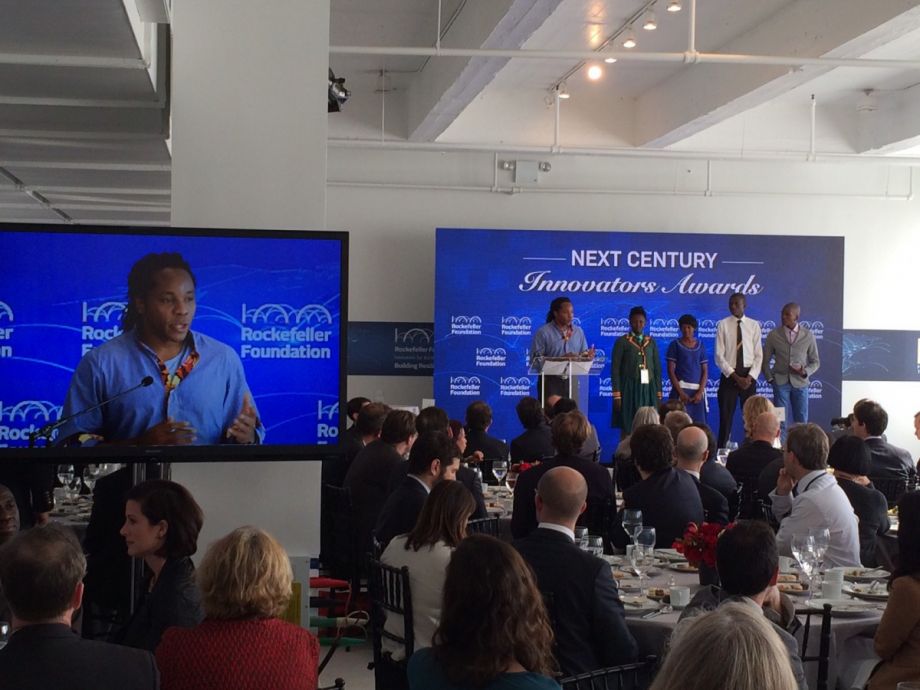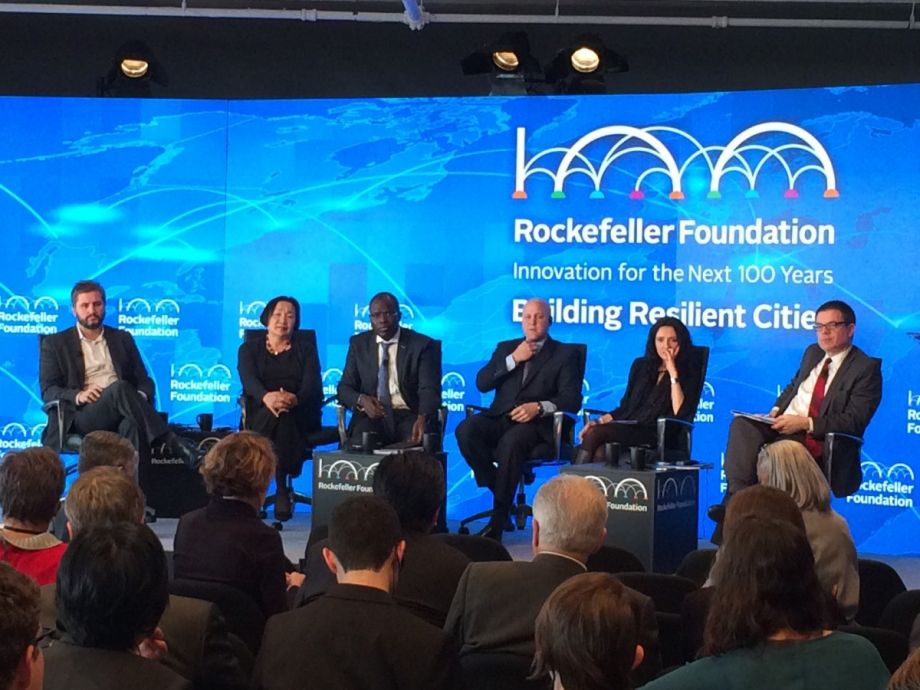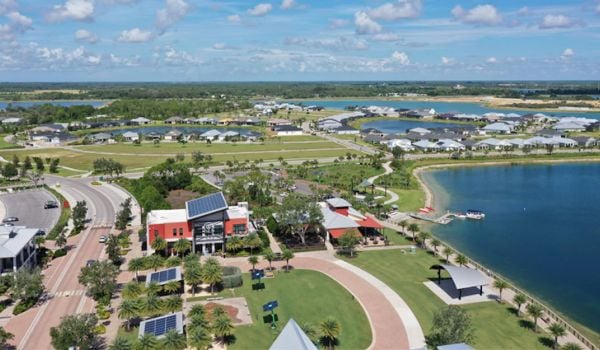“If you’ve ever had a near-death experience… it clarifies your mind like nothing else.”
That was New Orleans Mayor Mitch Landrieu speaking at The Rockefeller Foundation’s 2013 Innovation Forum. Held in New York City on Tuesday, the forum brought together policy-makers, educators, activists and urbanists to share their thoughts on urban resiliency, something Landrieu knows a thing or two about. The near-death experience he was referring to wasn’t his own, but his city’s, when it was struck by Hurricane Katrina. And his point was that it’s not always obvious what a city needs — until, suddenly, it becomes crystal clear.
The day-long event featured panel discussions, break-out workshops and awards presented to what Rockefeller calls Next Century Innovators, people who are working to improve their cities for the future. The future, in fact, was the unofficial theme of the day — not a far-off, theoretical future, but a future that could easily take place at any moment, without warning, and one for which cities must be prepared.

Winners of the Next Century Innovators Award.
Ideas for those preparations ranged from restoring coastal wetlands to reducing youth violence to slowing the pace of rural-to-urban migration down to a more manageable speed. Oakland Mayor Jean Quan described a program her city is working on that teaches youth how to interact with police in a way that keeps them safer. Khalifa Sall, Mayor of Dakar, Senegal, spoke of educating migrants driven to his city by chronic droughts. Landrieu talked about changing the way water flows in and out of New Orleans.
And while many of the proposals and initiatives dealt with highly visible problems, others highlighted quieter issues, like the spread of “neglected diseases.” These are illnesses that occur mainly in poorer cities and are typically ignored by pharmaceutical companies. It was this type of slow-motion disaster that Michael Berkowitz, Managing Director of Rockefeller’s 100 Resilient Cities Challenge, was talking about when he said that resilience isn’t just about acute shocks, but “a broad range of chronic stresses.”
Such stresses are in no short supply. Public health. Corruption. Widespread unemployment. These are all resiliency issues, and the program touched on many of them in ways large and small. Ultimately, The Rockefeller Foundation hopes to knit together such issues in the cities it has selected for its 100 Resilient Cities Challenge, the first 33 of which were announced at the event. (Click here to view the list.) It will do this, in part, by helping the selected cities implement Chief Resilience Officers who can act as central pivot points for various groups working on resilience-related concerns.
It’s a critical task that won’t be easy. As Mayor Landrieu emphasized: “Government yearns to be silo’d, because that’s what’s easiest to do.” But breaking down those silos will be critical to the future of cities, as they grapple with challenges larger than any other city has ever had to face. The urgency of the undertaking suddenly seems crystal clear.

Will Doig was formerly Next City’s international editor. He's worked as a columnist at Salon, an editor at The Daily Beast, a lecturer at the New School, and a communications staffer at the Open Society Foundations. He is the author of High-Speed Empire: Chinese Expansion and the Future of Southeast Asia, published by Columbia Global Reports.





_1200_700_s_c1_600_350_80_s_c1.jpg)







